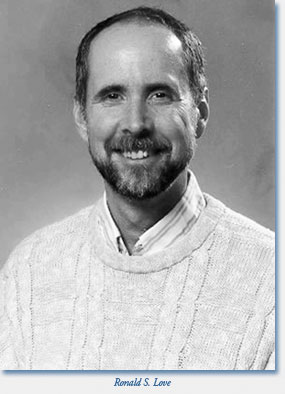 Specialized in early modern France; president of Western Society for the Study of French History
Specialized in early modern France; president of Western Society for the Study of French History
Ronald S. Love, a specialist in 16th- and 17th-century France, passed away suddenly on February 7, 2008, at the age of 53 at his home in Carrollton, Georgia, where he served as a highly admired professor of history. Love was born in Calgary and attended the University of Alberta, where he received his BA with honors in history and later an MA under George Rothrock. He went on to receive another MA and a PhD under Lloyd Moote at the University of Southern California. He will be missed by many: his family, his friends, his students, and his colleagues, especially by the members of the Western Society for the Study of French History for whom he served as president, as a member of the governing council, as a local host, as a chair or commentator, and where he often presented insightful papers at innumerable meetings. He was committed to the society and to his profession. His work was grounded in the breadth of his training, informed by a thorough knowledge of his sources, and guided by rigorous academic standards. Few historians have the ability to write to a specialized audience and to appeal to a wider public, but he did. Even fewer had "his graceful virtuosity," or the breadth of his research and teaching interests, which spanned four continents and over 400 years.
He was both a prolific and rigorous scholar, who wrote six major books: Blood and Religion: The Conscience of Henry IV, 1553–1595 (2001); SaskTel: The Biography of a Crown Corporation and the Development of Telecommunications in Saskatchewan (2003); Dreaming Big: A History of SaskTel (2003); Distant Lands and Diverse Cultures: The French Experience in Asia, 1600–1700, with Glenn Ames (2003); Maritime Exploration in the Age of Discovery (2006); and The Enlightenment of the Eighteenth Century (forthcoming 2008); as well as numerous articles in leading periodicals, such as The Canadian Journal of History, The Sixteenth-Century Journal, International History Review, and Historical Reflections, to name but a few. While many historians are mired in the details and thrash among the trees, Love perceived not only his forest but others as well.
One of Love's strengths was his ability to set issues within a larger context and to venture beyond the constraints of Europe. Some of his work casts new light on Louis XIV's aspirations outside the European theatre. His work illumines the clash between the European system of theoretically equal states and that of the Eastern tradition of dominant power and client kingdoms. His explicative piece, "The Making of an Oriental Depot," illustrates the best kind of "thick description," which illumines a society through an analysis of its ceremonial. He adopted and adapted the methods of the best of the historical anthropologists to raise a number of important questions on the cultural and political implications of the meeting of two very different cultures, namely Siam and France.
His abilities have been recognized by the award of a number of fellowships: the Canada Research fellowship, the Social Sciences and Humanities Research Council of Canada postdoctoral fellowship, the Izaak Walton Killam Memorial postdoctoral fellowship, and the Phi Beta Kappa research fellowship, among others. The strength of his publications, his impact on the field, the extra mural grants, and his outreach to the larger community have earned him an international reputation.
His service to students led to his election to the Phi Alpha Theta National Council and to the J. David Griffin Award for Superior Teaching. He mentored many and encouraged them all.
In particular, he will be missed by his friends. When several of our colleagues were unable to contribute to one of our books, Love volunteered to write their entries and produced outstanding pieces under a very tight deadline. We will miss his puckish humor, his acerbic wit, his courageous attack on the orthodoxies of the profession, his original mind, his unfailing generosity. He epitomized the ideal of a man who deeply valued education because to paraphrase John Stuart Mill it gives man a "deeper and more varied interest . . . in life"; it increases its value tenfold and imparts a value that lasts "to the end."
Both his family and numerous friends remember his zest for life; his perching atop an elephant in Thailand, and his performance at the Los Angeles Renaissance Faire in full Elizabethan costume, among many other things, attest to his love of fun and his joyous attitude.
A loyal friend whom one could always count upon, an affectionate brother, uncle, and son, a scholar of unswervingly rigorous standards, an academic of the highest ideals and principles, a tireless worker, a dedicated teacher. His father, mother, three brothers, and numerous nieces and nephews survived him.
He made a difference in the lives of many. In the words of an Irish sage: “Tasks left undone must stay that way./And if my parting has left a void/Then fill it with remembered joy."
—Linda Frey
University of Montana
—Marsha Frey
Kansas State University
Tags: In Memoriam Europe
Comment
Please read our commenting and letters policy before submitting.






